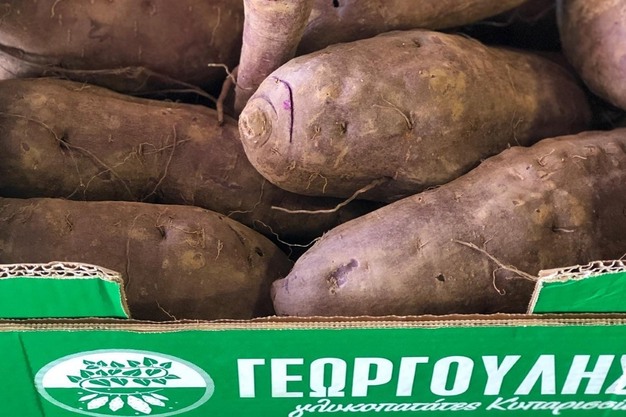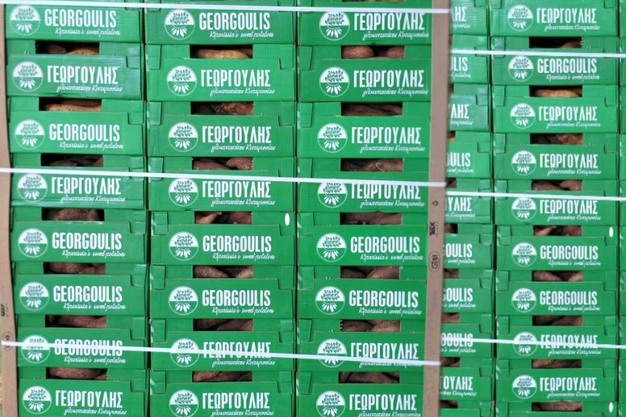The continuous rainfall in the Peloponnese in recent weeks has prevented the harvest of Greek sweet potatoes from being completed. “We should have finished by October 15, but with the repeated rain, which forecasts say will continue for quite some time, we might not finish until December. We still have 20 hectares left to harvest, but once the rain stops, it takes about ten days before we can start harvesting. If it rains again in the meantime, we start counting the days from zero,” explains Panagiotis Georgoulis, owner of Georgoulis Fruit from Kyparissia.
As he clarifies, the rain does not affect the quality of the crop but does impact costs: “The product’s quality is not affected, but it comes out muddy and requires more washing to be ready. All of this means higher costs for machinery and labor, which is hard to find. We see that losses in the field do not exceed 20%, and with grower prices for the sorted product at €0,60–0,70 per kilo, I would say it’s acceptable, especially if, as a producer, you’ve achieved 28 tons per hectare. This year, yields ranged between 25 and 30 tons.”
 © Georgoulis Fruit
© Georgoulis Fruit
The Greek exporter delivers some quantities to the domestic market, but the main part of his production is absorbed by a major foreign supermarket chain. He notes a significant increase in demand year after year: “For us, demand is practically stable throughout the year because almost all the product is bought by a specific customer under a fixed program. However, each year, interest in sweet potatoes increases. This one customer alone bought 110% more sweet potatoes from us in 2025 than in 2024, even with the presence of Egyptian sweet potatoes.”
“Of course, this doesn’t mean that Egyptian sweet potatoes don’t put pressure on our prices. We have to adjust our costs. Still, Greek sweet potatoes are valued as a quality product and are grown without chemical applications, organically. Even for fertilizers, we only use organic fertilizers and in minimal amounts—200 kilos per hectare.”
 © Georgoulis Fruit
© Georgoulis Fruit
However, cultivation in Kyparissia comes with challenges. “Our biggest concern is the quality and availability of water. The wells provide water with elevated conductivity, and we have been cut off from the nearby reservoir’s supply. This doesn’t allow us to fully implement our plans with certainty. We want to increase our quantities. We already cultivate sweet potatoes on 70 hectares and buy from our partners who grow a total of another 50 hectares. However, we are also looking for collaborations in new areas with new producers. Within the next four years, the supermarket chain we work with has asked us to deliver 5.000 tons of product,” concludes Mr. Georgoulis.
For more information:
Panagiotis Georgoulis
Georgoulis Fruit
Tel: +30 276 106 2603
Mob: +30 694 579 6116
Email: [email protected]
Source: The Plantations International Agroforestry Group of Companies
